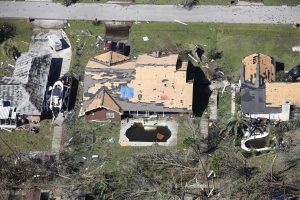Mediation and the Silver Lining From An Impasse
Mediation is one of the early steps on the path towards a potential settlement. A neutral individual, called a mediator, works with all parties as a discussion leader and facilitator to make the meeting more efficient (although he or she has no actual decision-making authority and no ability to bind the parties). While the word “mediation” implies working towards an agreeable financial arrangement, mediations are unfortunately more of a formality than an effective setting for wrapping up homeowner claims, unless the other side arrived in a posture of compromise and conciliation.
The best possible outcome of a mediation is settlement. Unfortunately, settlement is often unlikely because many of the decisions that affect a negotiation were already made by the insurance company before they entered the mediation room. The insurance company’s approach makes mediation just another arduous and frustrating step in getting your home restored to its pre-loss condition.
Sometimes mediation can be a reiteration of a position they have previously stated concerning their coverages available under your policy. It can also be a chance for the insurance company to tell you they are still rejecting your claim. Additionally, they may offer you less than what it would cost to repair your home in an effort to “low ball” you and discourage you so that you accept less than you are entitled to after a covered loss. When obviously inadequate figures are being paraded by an insurance company at mediation, it is important to not be discouraged.
Originally, mediations were intended to be problem solving opportunities put in place to attempt to prevent litigation. Currently, however, and after Hurricane Irma and Michael, it seems they have mostly turned into discussions about both parties disagreements.
Even though mediation more often than not results in what is deemed an “impasse”, there are silver linings. You may have to look closely, but rays of hope often emerge in the form of agreements within disagreements. For example, maybe both sides agree that a hurricane happened in your vicinity, but insurance company will conjecture that your home’s damage was not the result of the hurricane. Likewise, carriers may agree your roof has been damaged, but they use “experts” to try and attribute it to other causes such as wear and tear, footfall, thermal expansion and contraction, faulty installation and even golf ball damage, when they internally know it was caused by a hurricane. When they do this, their so called “expert” engineers often ignore clear storm related damage simply to appease their client—the insurance company.
Despite such discourse, often times after a mediation and/or after a lawsuit has been filed, insurance companies finally settle their insurance claims, notwithstanding their “expert’s” opinion saying that your home’s roof was not damaged by the hurricane.
What you need to realize is that mediation is often simply a part of a bigger process. If you do come close to a settlement at mediation, it is important to be sure that you ask all the questions you have of your attorney before you agree to sign any agreement put in writing at that time, as any written (or oral) agreement resulting from mediation will likely be binding against you.
Let the attorneys at Vishio Forry, PLLC help guide you through this process.



